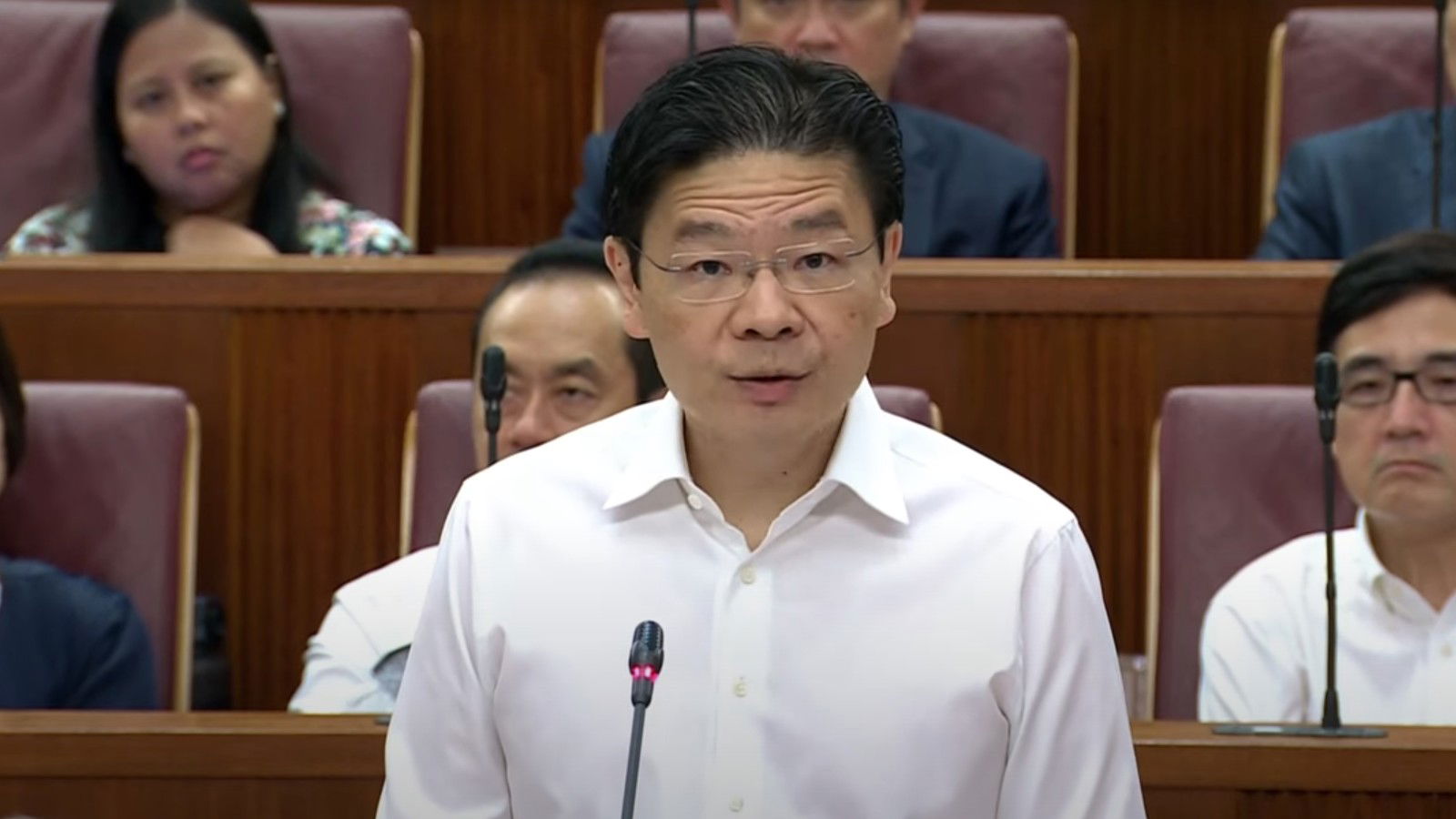share on
The US tariffs are reshaping global trade, and Singapore is bracing for the impact. Prime Minister and Finance Minister Lawrence Wong outlines Singapore’s response to the shifting economic landscape and the uncertainty ahead.
In a ministerial statement delivered on 8 April 2025 (Tuesday), Singapore Prime Minister and Minister for Finance Lawrence Wong said the United States’ latest tariff announcement as a "profound turning point" for free trade, signalling the end of rules-based globalisation.
The 10% blanket rate on nearly all imports, with even higher rates of up to 50% for selected countries were labelled by the US as necessary to fix trade imbalances. However, Prime Minister Wong called the move “a fundamental rejection of the WTO rules”, highlighting the risks to smaller countries like Singapore that rely heavily on a stable multilateral trading system.
“One of the cornerstones of the WTO multilateral trading system is the Most Favoured Nation (MFN) principle,” PM Wong stated. "Most Favoured Nation sounds like giving special privileges. Actually, it means the opposite: that every member must treat all other members equally. In other words, if a country extends more favourable terms or imposes additional restrictions to one trading partner, it must do the same to all other WTO members."
"If other countries adopt the same approach, the rules-based trading system will unravel," he added.
The shift of an era
PM Wong described this transition as entering "a new phase in global affairs – one that is more arbitrary, protectionist and dangerous."
Singapore, despite having a Free Trade Agreement (FTA) with the US and running a trade deficit with it, is still affected by the new 10% universal tariff.
Across Asia, the impact is more severe. China, in particular, faces a 34% tariff, bringing its average US tariff rate to over 60% after previous hikes.
Risks of a trade war
The ripple effects are already being felt globally. Businesses are growing cautious, with some placing projects on hold. While Singapore has chosen not to retaliate with its own tariffs to avoid raising costs for Singaporeans, PM Wong noted that other countries might not show the same restraint.
"Once trade barriers go up, they tend to stay up," he stated, later recalling the sweeping tariff increase from the Smoot-Hawley Act in the 1930s. "It will be very hard to restore the previous status quo."
Support for workers and businesses in Singapore
Singapore’s economy, being highly export-driven, is expected to feel the brunt of weaker global demand. Sectors such as manufacturing, electronics, biomedical science, wholesale trade, and transport are likely to be hit hardest.
While the Ministry of Trade and Industry (MTI) is reassessing the nation’s GDP growth forecast, PM Wong said that it will “likely revise it downwards”. As a result, slower growth may lead to fewer job opportunities, more retrenchments, and smaller wage increases.
To cushion the impact, PM Wong highlighted support measures introduced in Budget 2025, including CDC, SG60 vouchers, and U-Save for households, enhanced ComCare assistance for vulnerable groups, and SkillsFuture Jobseeker Support to help unemployed individuals retrain and upskill.
For businesses, corporate income tax rebates as well as productivity and competitiveness schemes are already in place. Economic agencies are also in touch with several multinational enterprises and local businesses. A dedicated Taskforce including Singapore Business Federation, the Singapore National Employers Federation, and the NTUC led by Deputy Prime Minister Gan Kim Yong will be set up to help businesses and workers adapt to this evolving landscape.
Singapore staying determined
Despite the bleak outlook, PM Wong reaffirmed that Singapore would continue forging partnerships with like-minded countries, and deepen integration within ASEAN. Conversations with leaders such as UK Prime Minister Keir Starmer and Malaysia's Prime Minister Anwar Ibrahim have already begun, with plans for a Special ASEAN Economic Ministers’ Meeting happening on 10 April.
PM Wong ended with a note of determination: "Now, more than ever, we will stay resolute and united. Our little red dot will continue to shine. In a dark and troubled world, Singapore will hold our ground as a beacon of stability, purpose and hope.”
share on
Follow us on Telegram and on Instagram @humanresourcesonline for all the latest HR and manpower news from around the region!
Related topics


